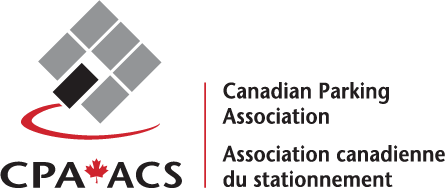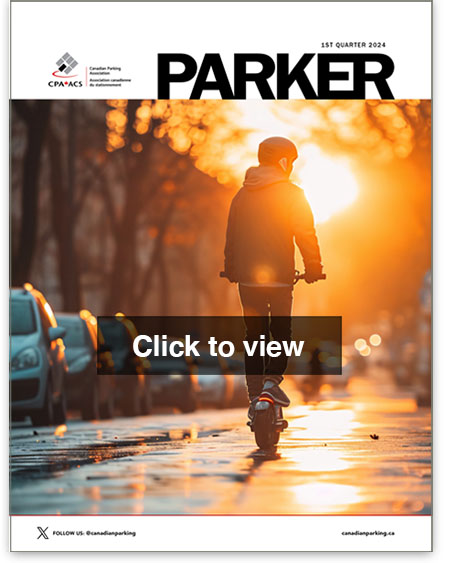Winnipeg Parking Authority Driving into the Transportation Mobility Sector – Vehicle for Hire Division is Recognized as the “Global Regulator of the Year for 2023”
By Randy Topolniski
In 2017, the Province of Manitoba passed The Local Vehicles for Hire Act, which dissolved the Manitoba Taxicab Board, repealed The Taxicab Act, and associated regulations, and transferred oversight of vehicle for hire (VFH) regulation to the municipalities. The Winnipeg Parking Authority (WPA)- a special operating agency of the City of Winnipeg- assumed responsibility for regulating the VFH industry, with Grant Heather managing this new business line. In December 2017, the City enacted a new Vehicles for Hire By-law that streamlined and modernized VFH regulations, and the newly formed VFH division opened its doors in 2018.
2023 Global Regulator of the Year
For the past several years, the WPA has been a member of the International Association of Transportation Regulators (IATR), a non-profit organization dedicated to sharing best practices in the licensing and regulation of for-hire ground transportation services. In recognition of their efforts to improve VFH service in Winnipeg, Grant Heather and the WPA’s VFH division was recently named the IATR’s 2023 Global Regulator of the Year. Winnipeg is only the second Canadian city ever to receive the IATR’s Global Regulator of the Year award, joining other recent winners including Montreal, Los Angeles, London, Chicago, and New York. Said Grant Heather, “This award is especially gratifying considering we have only been around for five years. It speaks to the incredible contributions our entire team has made in that short time.”
Over the course of those five years, the WPA’s VFH division has undertaken a number of initiatives to improve driver and passenger safety (winnipeg.ca/vehiclesforhire/safety-security.stm), service accessibility, and the integration of for-hire travel options into Winnipeg’s transportation system. Early examples include the addition of audio capabilities to the onboard camera systems required in each taxi and a rigorous vehicle safety program that conducted 14,489 inspections of taxis and personal transportation provider vehicles (including limousines and ride-hailing vehicles) in 2022. Other examples of more recent initiatives include the addition of Indigenous cultural competency training for VFH drivers, the development of a centralized dispatch system for accessible vehicles, and the Taxi Driver and Passenger Code of Conduct.
Indigenous Cultural Competency Training for VFH Drivers
There are a number of challenges faced by the Indigenous community in accessing safe on-demand transportation. The WPA’s VFH division has acknowledged these issues and is committed to supporting reconciliation efforts with Winnipeg’s Indigenous peoples. Partnering with the City of Winnipeg’s Indigenous Relations Divisions (IRD), the VFH division has worked to implement transportation-related items in the Calls for Justice raised by Canada’s National Inquiry into Missing and Murdered Indigenous, Women, Girls, and Two Spirited People (MMIWG2+). First and foremost is a new Indigenous Cultural Competency training program for VFH drivers.
The approach to developing this training was Indigenous-led and focused on decolonization, centering relationships to end violence, and being a partner in recognizing Indigenous power and place. The VFH division held workshops to consult with the MMIWG2+ community, leaders, and advocates in order to gain a better understanding of the difficult and often traumatic experiences and truths faced by the Indigenous community. The training program, developed and delivered entirely by Indigenous community members, is now mandatory for all licensed and registered VFH drivers. The 8-hour in-person training program, which is funded through a per-trip safety surcharge fee, has been well-received by members of the Indigenous community and VFH drivers alike. The hope is that this program will lead the way in training for other City of Winnipeg departments, including the City’s main public transportation service provider, Winnipeg Transit.
The Indigenous Cultural Competency training program also serves to raise the collective awareness of all City of Winnipeg staff and elected officials and reaffirms the need to end violence against the Indigenous community, particularly women, girls, and Two-Spirited people. This training is considered to be the first of its kind for VFH drivers in North America.
Winnipeg WAV Centralized Accessible Dispatch
The WPA is always seeking opportunities to improve the accessible transportation network by removing as many barriers as possible for both persons with disabilities and accessible service providers. When the City took over regulation of the VFH industry, the ratio of taxi licences to population was insufficient to serve the community’s demand. To fill this gap, in 2018, the WPA announced that 60 new accessible taxi operating licences would be issued, with eligibility limited to operators using wheelchair accessible vans. The VFH division received more than 3,000 applications and held a lottery to award the new licences.
After completing further consultations with the accessibility community, advocates, and the VFH industry, it became clear that many passengers requiring accessible vehicles were facing significant wait times. Passengers were often forced to call several dispatchers to order an accessible vehicle, taking the first one to arrive. This worsened wait times by having multiple vehicles assigned to a single passenger, with only one of them actually providing the ride.
Recognizing a need and following the increase in wheelchair accessible van capacity with the addition of the new licences, a plan was developed to improve on-demand accessible VFH service. In May 2022, the WPA’s VFH division launched the Winnipeg Wheelchair Accessible Vehicle (WAV) on-demand centralized dispatch system: LINK
In partnership with one of the largest taxi dispatch companies in the city, Winnipeg WAV employs a third-party software platform to run a dispatch system dedicated to accessible trips. VFH drivers may run the WAV platform in parallel with their regular dispatcher, enabling them to accept requests for rides from either source. The Winnipeg WAV system sends the closest available accessible vehicle, regardless of the dispatch company with which it is affiliated. Winnipeg WAV is also being used to supplement the City’s para-transit system, Winnipeg Transit Plus.
“The Winnipeg WAV has been a transformative service for many users. It has streamlined the process for obtaining accessible service by creating a single point of contact, accessible by phone, website, or through the app, so that customers no longer need to call multiple service providers to obtain a ride,” remarked Grant Heather, the WPA’s Manager of Vehicles for Hire. “It also allows small service providers access to a much larger market and puts technology in their vehicles that they would not normally be able to afford. This program is truly a win-win all around.”
Participation in the Winnipeg WAV centralized dispatch system is voluntary from accessible drivers and accessible vehicle owners. To account for the additional upfront capital investment and greater time commitment required to provide wheelchair-accessible service, accessible vehicle owners and drivers are given financial incentives based on customer service ratings and other trip metrics. In 2022, a total of $153,550 was paid to drivers and owners providing this accessible service. These incentives and other program costs are funded by a per-trip accessibility surcharge.
By the end of 2022, 2,565 trips had been provided through Winnipeg WAV. As the system continues to gain popularity, it is expected that Winnipeg WAV will dispatch approximately 11,500 dedicated accessible trips in 2023. The Winnipeg WAV program is the second of its kind in Canada, and one of only a handful currently operating in North America.
Taxicab Driver and Passenger Code of Conduct
In an effort to ensure the WPA’s role as a regulator was starting off on the right foot, the City of Winnipeg conducted a public engagement survey on VFH safety and accessibility in 2018. The survey results suggested that passengers and drivers could benefit from a formal Code of Conduct that would set standards for behaviour and business practices during on-demand trips. After further consultation with passengers and industry stakeholders including taxi drivers, owners, and dispatchers, the Taxicab Code of Conduct was approved in 2020. Copies of the document in both English and French are now posted in all licensed Winnipeg taxis.
The Code of Conduct clearly lays out the rights and responsibilities of both drivers and passengers. The document addresses safety and security (e.g., the use of seatbelts and the display of a valid taxi licence), payment methods, and some elements of professionalism and customer service such as a requirement for drivers to be familiar with major routes and destinations throughout the city. The Code of Conduct is a living document that may be updated from time to time based on feedback from passengers and drivers. It helps to establish a mutual understanding for both parties and serves as a helpful supplement to the City’s Vehicles for Hire By-law, which may not be familiar to all passengers and drivers. Development of the Code of Conduct (LINK) was funded through a per-trip Safety and Security surcharge, at no cost to taxi drivers or owners.
Parking, Vehicles for Hire, and Mobility Management
Building on its success as a regulator of the local VFH industry, the WPA intends to continue integrating other aspects of transportation and mobility management wherever possible. The agency is in the final stages of developing a five-year strategic plan that considers parking, on-demand transportation services, active transportation, transit, curbside management, and infrastructure to support zero-emission vehicles.
As the WPA’s General Manager, Randy Topolniski, puts it, “The Winnipeg Parking Authority has been evolving steadily since it was created in 2004. We’re now responsible for parking operations and enforcement, managing the ticket appeal process for nearly 1,000 different offences in 22 by-laws, collecting outstanding fines for 10 City departments, and overseeing the regulation of Winnipeg’s vehicle for hire industry. Being named Global Regulator of the Year by the IATR shows that the City of Winnipeg’s decision to integrate VFH regulation with its parking authority to create a more holistic mobility management agency was the right move.”
About the author:
Randy Topolniski, General Manager, WPA
randytopolniski@winnipeg.ca




